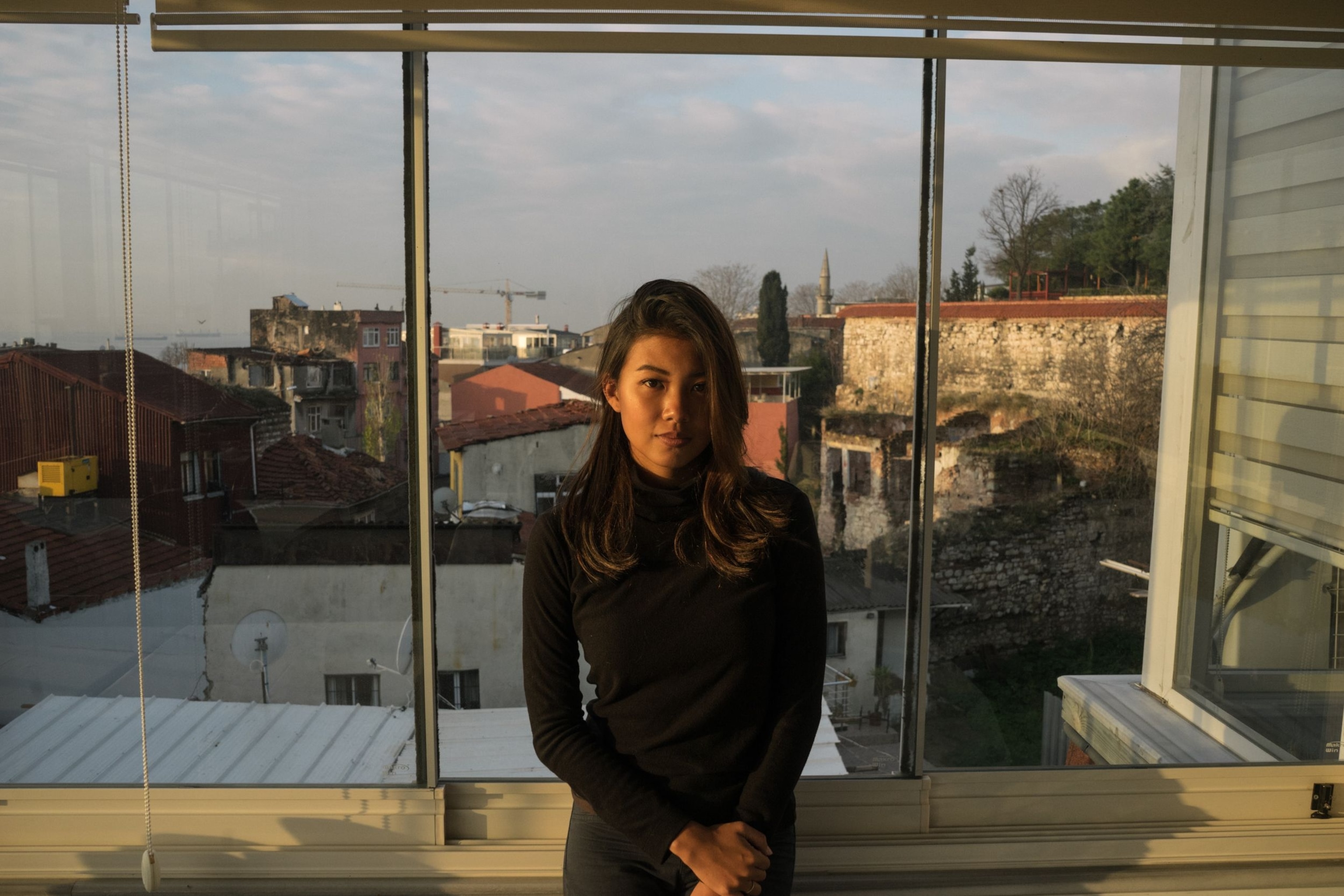
Hannah Reyes Morales has spent a decade telling intimate human stories
The documentary photographer explores resilience and tenderness amidst adversity.
The babies were strapped to their mothers’ backs, and even so, Hannah Reyes Morales observed, these women navigated the icy terrain with cameras in hand, photographing the landscape with an ease that defied the extra weight of their children.
It was Arctic fall and Reyes Morales, a National Geographic Explorer and documentary photographer was guiding a group of students through a photography lesson as part of National Geographic Photo Camp Nunavut, which was hosted in collaboration with National Geographic and Rolex Perpetual Planet Ocean Expeditions, a series of trailblazing scientific research expeditions across the world’s ocean from seashore to seafloor and from pole to pole.
As an instructor for Photo Camp, a 22-year-running photography and bridge-building program created by Explorer in Residence Kirsten Elstner, Reyes Morales and other Explorers imparted their visual storytelling knowledge to 12 local participants — many were mothers who brought their young children with them.
She was part of the “Photo Camp magic,” as Elstner often calls it — the spirit of community that becomes palpable after days of bringing people together to take pictures of their environment and each other. Reyes Morales witnessed, and relived, the feeling of “new agency” that comes with the weight of a camera in hand. She saw her students experience wonder and uncover new worlds from the light and shadow, and noticed the gestures of care within their community. “What a magical medium photography can be,” she says.
To the mothers wearing their children in their amautis as they explored and documented their outdoor classroom, Reyes Morales says their experience resonated. “Seeing them out by the Arctic Ocean, photographing and working with their children in their amautis showed me a kind of maternal capacity I hope to grow into.”
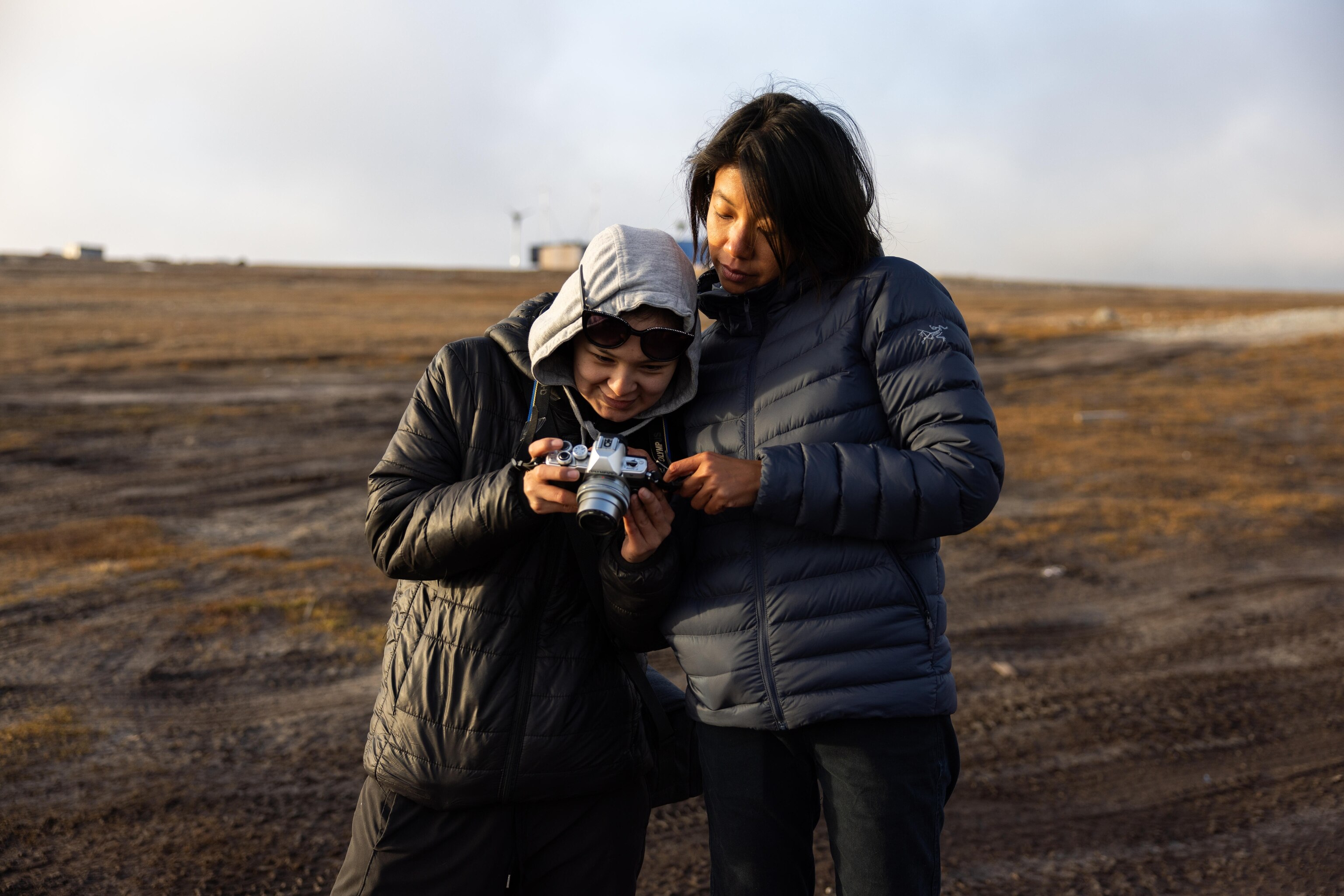
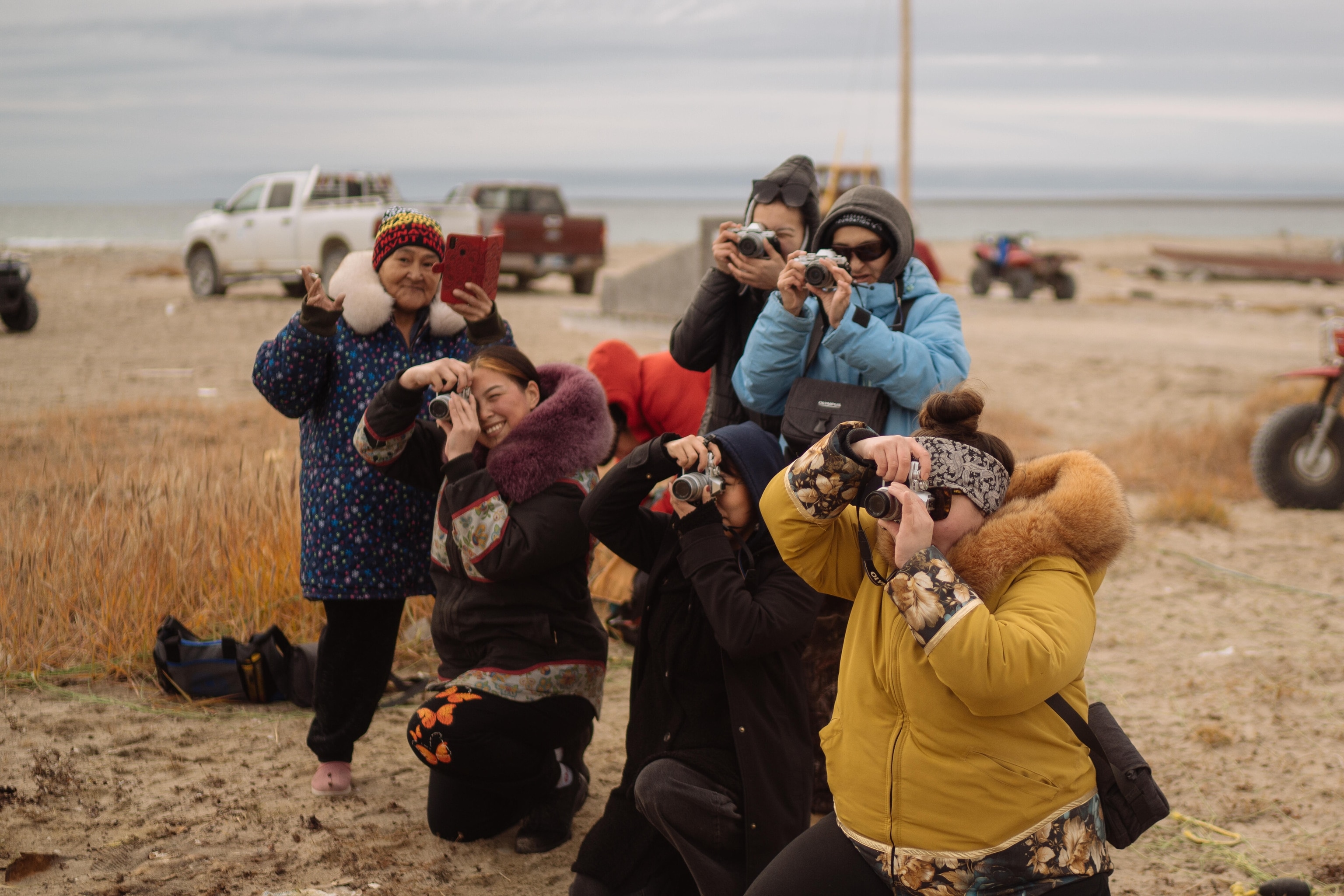
The unique collaboration with Photo Camp created a platform where participants could share stories about their connection to the environment and learn the traditional knowledge of community elders. The last time she visited the community here in Gjoa Haven, she was eight months pregnant and collecting stories for her latest project focused on the ocean and what home looks like for people living near it. The local community blessed the child in her belly, who would make her a first-time mom.
Through 10 years of career photography, she’s let her storytelling subjects permeate her in this way, narrowing the barrier between documentarian and character. For Reyes Morales, every still is not just a moment she’s photographed, but a moment she’s lived. “If I don’t let them change my life then what’s the point?” is one summary of her philosophy. “I want them to change the way I see and navigate life.”
Photography ‘as a way of searching’
Reyes Morales got the idea for a long-term project about water when she moved to a coastal town in the Philippines during the COVID-19 pandemic. She’d tell the stories of people who live near the ocean — from its edges in the Arctic to its Polynesian archipelago — examining the role of water as a human connector and home. The ongoing project, funded by the National Geographic Society, is pushing the boundaries of what she understands about her craft.
“I realize how visually challenging it is to work on stories about the coast. The pace is different. I’ve been coming to this project more as a student than a traditional documentarian.”
The Pulitzer-nominated photographer recently sailed with Polynesian sea navigators, learning about their traditional systems. Aboard the Hōkūleʻa — a 1976 traditional voyaging canoe built by the Polynesian Voyaging Society (PVS) and captained and navigated by fellow Explorer Lehua Kamalu on a leg of its multi-year circumnavigation of the Pacific Ocean — she bore witness to seafaring value systems, systems rooted in the stars, the wind and waves, the language of the sea, surfed by communities who have mapped the waterways for centuries.
“Photography is a way of searching, and sometimes it’s really figuring out what you’re searching for in the world. I’ve been pulled toward different ways of knowing and I think that’s been a big influence on why I've come to this story,” says Reyes Morales. “It’s a quiet story, knowledge that I hope I can bring home and to the field.”
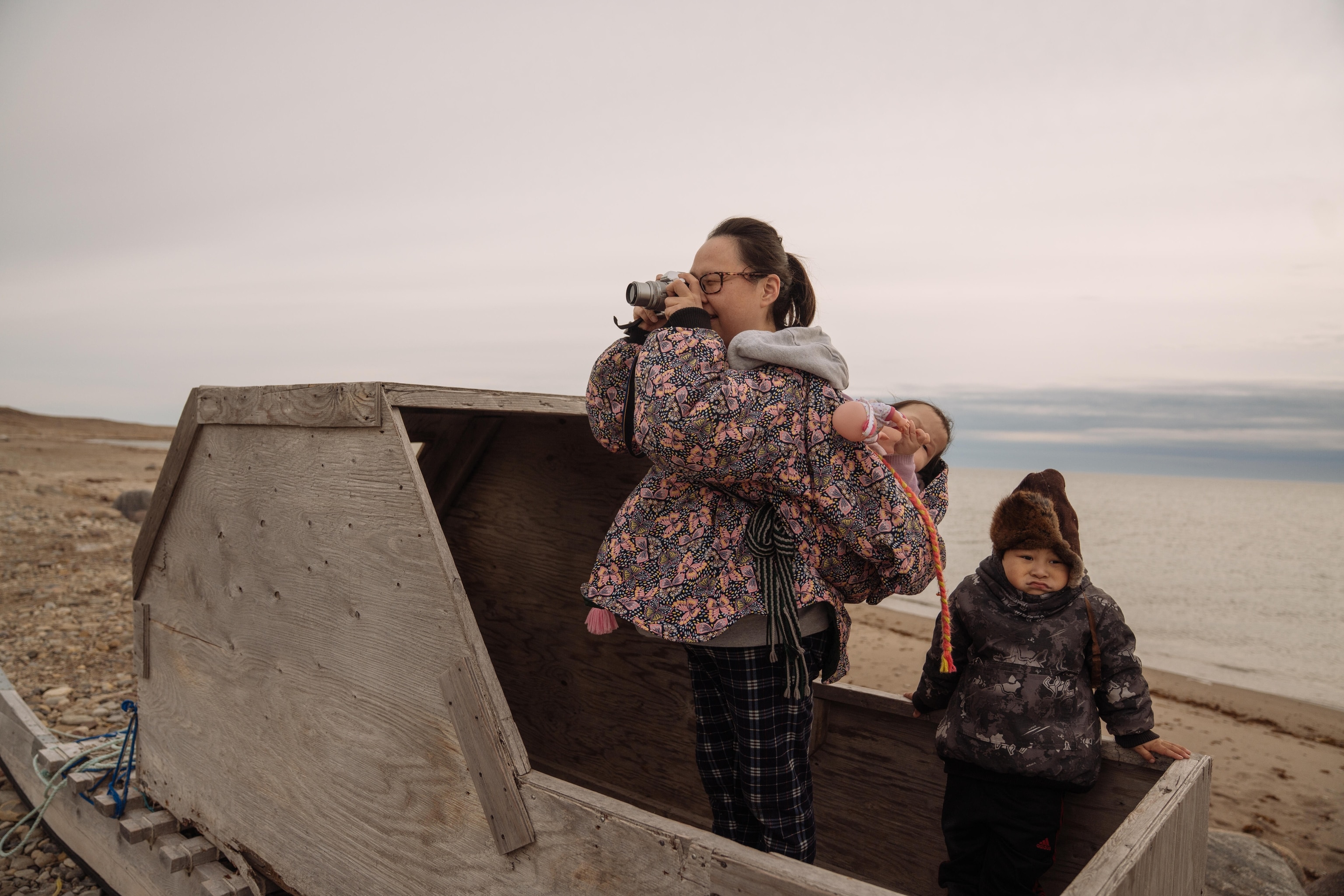
When she initially conceived of a project on the ocean, mostly underwater images came to mind. How would she tell stories differently? “I craved to know about the people. The people on the frontlines living on the coast, that’s where my curiosity was.”
Reyes Morales is an islander herself. She was born and raised in Manila, Philippines, and found common ground in collaborating with other islanders. “In a way it’s been weirdly very personal. It’s been a very decolonizing process as well.” Though she says growing up the ocean felt out of reach; she spent most days at home. Then one day, it led her to photography.
She turned inward, to the shelves in her living room, perusing National Geographic and Life magazines. She looked for Filipinos in history books. She saw them posed “like souvenirs” with visitors of the 1904 St. Louis World’s Fair. “I would wonder who they were, and how they would feel being photographed. It’s with that memory that I try to photograph in a different way.”
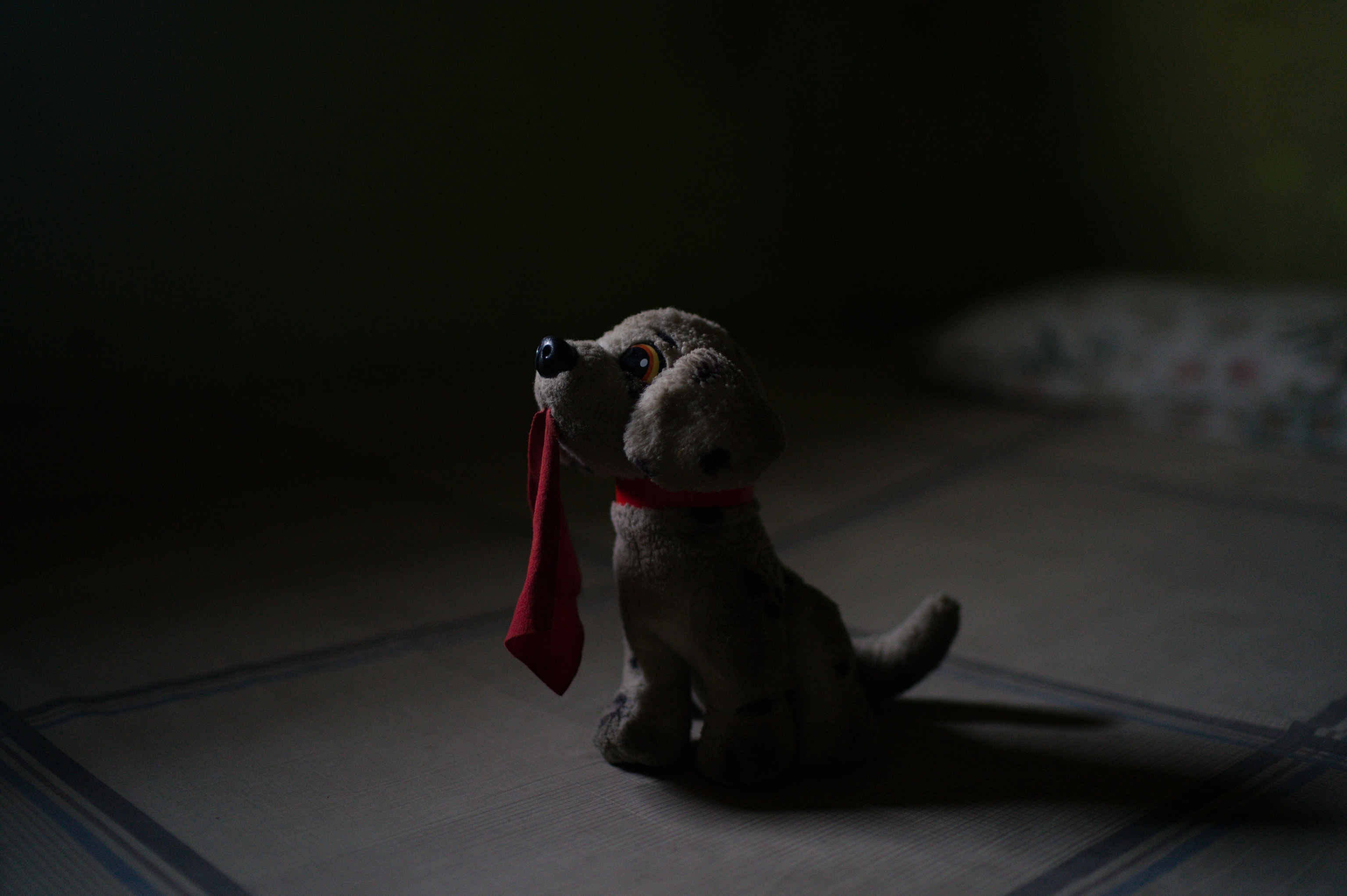
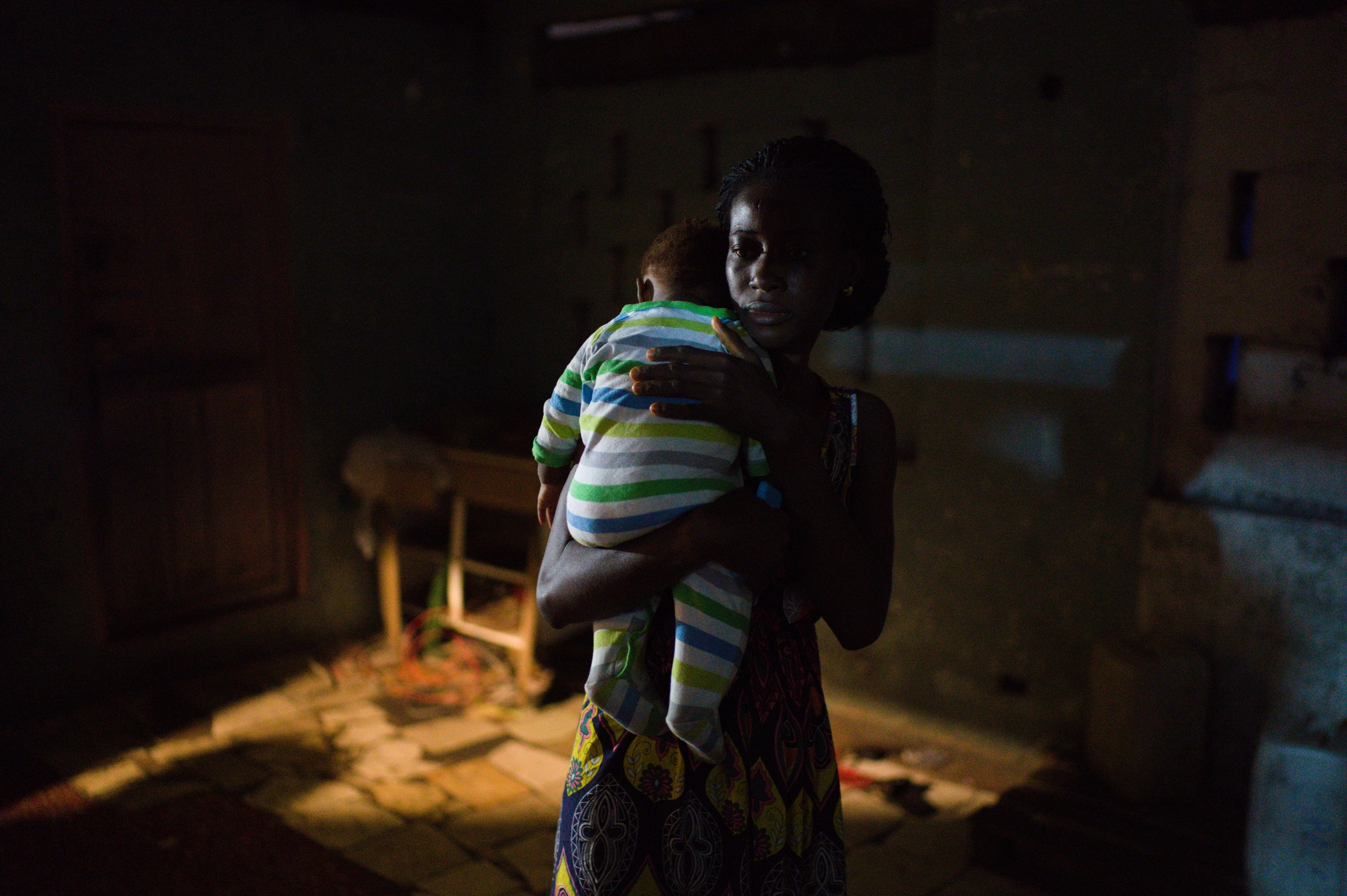
Family photo albums and photography were always an early source of inspiration. She wanted her Nanay, who raised her alongside her mother, to be visible in more of them. It made her wonder about the significance of photography and societal dynamics. She learned about the outside world through pictures. When she eventually borrowed a camera she could use to practice creating her own, her Nanay would pose for her. Eventually, they published a project together.
Years later, Reyes Morales got her own camera while studying speech communication at the University of the Philippines Diliman, and her projects grew. She received a National Geographic Young Explorers grant from the Society to support her work documenting the changing Indigenous cultures in the Philippines. Her work on human trafficking at sea was featured in The New York Times. She reported on war crimes against Cambodians for Al Jazeera, and redefined beauty in pictures for National Geographic magazine. She spent a season with Kazakh teenagers who hunt with eagles, and set foot in the aftermath of natural disasters and human brutality.
“How do humans make their homes in the face of challenges?” she wonders. How do they carve out homes through physical and societal storms, after devastation, or after the arrival of children?
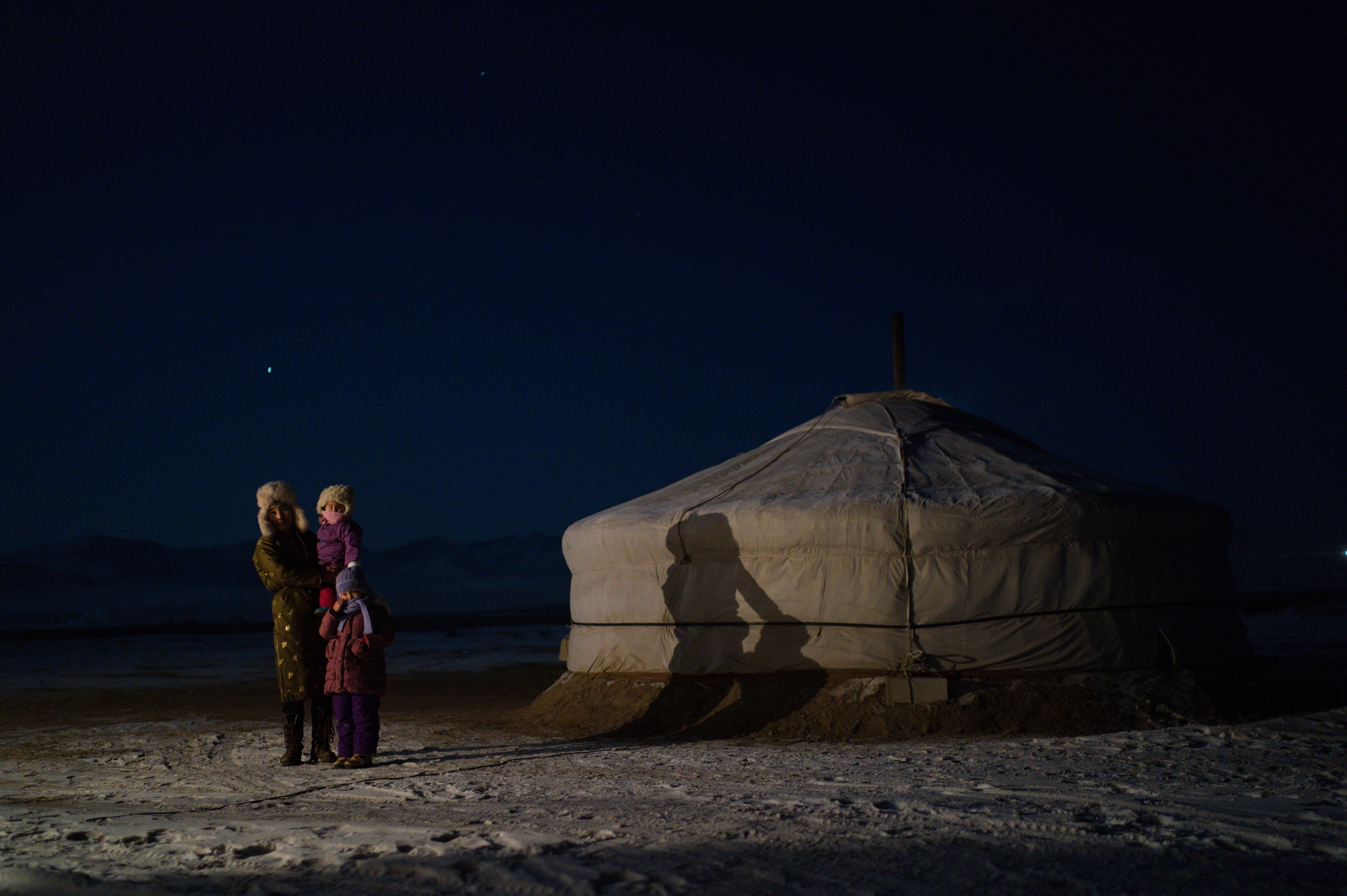
For her project “Living Lullabies,” she traveled around the world, capturing exceptionally intimate moments of children and their caregivers during night-time rituals, depicting how they prepare for sleep in environments fraught with risks.
“As I’ve continued my career I’ve tried to remember that it should feel like someone you love and care about is taking your picture.” That trust takes time. It means not taking the camera out for a while for Reyes Morales, and approaching every assignment with humility. If there’s one thing she keeps at the helm of her process it’s an awareness that every interaction is a starting over of sorts. Despite the years of experience under her belt, every image is built from a relationship she has to start from scratch.
“Access is a gift, and nobody is entitled to that gift. No matter how far you go in your career, you are not entitled to anyone’s time, space or generosity. Every time that I’m granted access I just feel very grateful.”
Reyes Morales has been thinking a lot about how to be a good steward of the stories she’s in the process of gathering about coastal communities.
For the ongoing undertaking she’ll continue to investigate what it means to call the ocean home, which will keep taking her around the world. Recently it was Hawaii, as part of her documentation aboard the Hōkūleʻa. She brought her daughter with her.